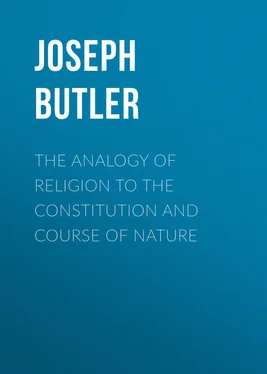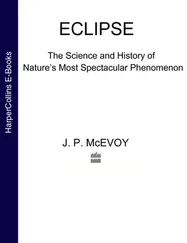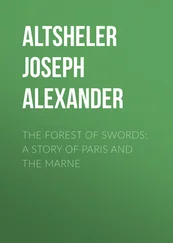Joseph Butler - The Analogy of Religion to the Constitution and Course of Nature
Здесь есть возможность читать онлайн «Joseph Butler - The Analogy of Religion to the Constitution and Course of Nature» — ознакомительный отрывок электронной книги совершенно бесплатно, а после прочтения отрывка купить полную версию. В некоторых случаях можно слушать аудио, скачать через торрент в формате fb2 и присутствует краткое содержание. Жанр: foreign_antique, foreign_prose, на английском языке. Описание произведения, (предисловие) а так же отзывы посетителей доступны на портале библиотеки ЛибКат.
- Название:The Analogy of Religion to the Constitution and Course of Nature
- Автор:
- Жанр:
- Год:неизвестен
- ISBN:нет данных
- Рейтинг книги:3 / 5. Голосов: 1
-
Избранное:Добавить в избранное
- Отзывы:
-
Ваша оценка:
- 60
- 1
- 2
- 3
- 4
- 5
The Analogy of Religion to the Constitution and Course of Nature: краткое содержание, описание и аннотация
Предлагаем к чтению аннотацию, описание, краткое содержание или предисловие (зависит от того, что написал сам автор книги «The Analogy of Religion to the Constitution and Course of Nature»). Если вы не нашли необходимую информацию о книге — напишите в комментариях, мы постараемся отыскать её.
The Analogy of Religion to the Constitution and Course of Nature — читать онлайн ознакомительный отрывок
Ниже представлен текст книги, разбитый по страницам. Система сохранения места последней прочитанной страницы, позволяет с удобством читать онлайн бесплатно книгу «The Analogy of Religion to the Constitution and Course of Nature», без необходимости каждый раз заново искать на чём Вы остановились. Поставьте закладку, и сможете в любой момент перейти на страницу, на которой закончили чтение.
Интервал:
Закладка:
To no Christian is this book so useful as the minister. He is constantly confronted by the difficulties which Butler so triumphantly handles. Here he is furnished, not only with a shield to protect his own mind from subtle darts, but a sword to demolish the cavil, and defend the system of which he is a public teacher.
To all persons this book is of great value. We arrive at certainty in but few of our decisions, and are often obliged, even in matters of great moment, to act on probability. Thus we employ precautions when an evil is not certain to occur. If the evil would be very serious, we adopt the precaution, when there is but little probability, or perhaps a bare possibility, of its occurrence. Now, Butler has shown that if the proofs of revelation were weak, nay, if it had absolutely no proof, nay further, if on fair examination there appeared not even a probability of its truth, still there would remain a possibility , and this alone, considering the tremendous issues at stake, should make every man a Christian. This argument cannot be applied to Mahometanism or any other religion, because against those much may be advanced as disproof . Our author, having shown the utter absence of disproof, shuts us up to the reception of Christianity, were its truth barely possible.
There have not been wanting persons to disparage the “Analogy,” because it affords, as they say, no direct proof of revelation. As well might we demand a discussion of chemistry in a work on astronomy. Scores of writers prove Christianity, and here we have one to relieve us from the difficulties which beset it, and objections which still remain. There is an aspect in which the Analogy may be said to contribute the best of proof. What can go further towards establishing a point, than to demonstrate that there is no proof of the contrary? What can show the fallacy of a set of objections, more than to prove that they might be urged with no less force against the obvious course of nature? This use of analogy is conformable to the severest logic, and though offering no pretence of positive argument, goes far towards establishing full conviction. “The probabilities,” says Stewart, “resulting from a concurrence of different analogies, may rise so high as to produce an effect on the belief scarcely distinguishable from moral certainty.”
When it is considered that Butler’s argument is wholly in addition to the cumulative mass of direct and almost irresistible evidence, and removes even the objections which attend the subject, we see the rejection of Christianity to be inexpressibly rash and absurd. We see the skeptic condemned at his own bar, for acting in the most momentous of all possible concerns, in a manner the very opposite of that which he calls sensible and prudent in his ordinary affairs. The “Analogy” establishes, beyond cavil, strong presumptions that Christianity is true, aside from all inspection of its proofs. The man, therefore, who really understands this book, and refuses to be a Christian, is led by his lusts and not his reason.
Some admirers of this book have lamented as a defect, its want of evangelical tincture, and its exclusive reference to natural things. To me, this is a prime recommendation. Were it otherwise, the reasoning would be in a circle. The very structure of the argument demands that it should avoid quotations from the Bible.
It must be admitted, however, that some expressions, taken just as they stand, without qualification by the current of the argument, tend to lead astray. For instance, “There is nothing in the human mind contrary to virtue.” “Men’s happiness and virtue are left to themselves.” “Religion requires nothing which we are not well able to perform.” “Our repentance is accepted, to eternal life.” “Our relations to God are made known by reason.” Such expressions are not to be taken alone, but as explained by the general drift of sentiment and doctrine. No one can be familiar with his works, without finding the fullest evidence that Christianity was to Butler infinitely more than a creed or a ritual. Nor should we forget that such expressions are not to be interpreted by the tenor of the “Analogy” only, but by that of his whole ‘Works.’
Even if it be judged that he everywhere fails to express himself in such phrase as we usually call evangelical, it should be remembered that he was a Church-of-England man, at a time when there was a powerful reaction against the evangelism of the Puritans, and when a real lack of emotional piety was general in his church.
That he did not enjoy in his last illness, which extended over a long period, that sustaining sense of the love of Christ which hearty Christians generally feel, is certain. A friend, trying to relieve his depression, reminded him of his excellent life, and especially his wide liberalities. He immediately replied, “l am but a steward! All is His, intrusted to me, to promote his glory and the good of mankind; how can I know that I have not abused the trust? I reflect on all these things, and they fill my soul with terror by the feeling of responsibility they awaken.”
On another occasion, his chaplain sought to soothe his troubled spirit by referring to the extensive influence of his Analogy in reclaiming skeptics. His reply was, “I began the Analogy with a view to the glory of God; but as I proceeded, visions of the fame it might bring me mingled themselves with my motives, and all was polluted and made sinful! The book may be a blessing to others, but it weighs like lead on my soul.” “Admit all this,” tenderly replied the chaplain; “yet has not Jesus said, ‘Whosoever cometh unto me shall in no wise be cast out’?” Instantly the Bishop raised himself in the bed, exclaiming, “How wonderful that the force of this passage never struck me before! ‘Whosoever,’ — all , ALL! ‘In no wise,’ – no amount of sin can prevent acceptance! Christ’s righteousness will hide the iniquities of all who accept his offer of mercy!”
From that time, for weeks, Butler spoke to all who approached him, of a full and free salvation. He died triumphantly repeating this passage.
If all that is said of the lack of evangelical sentiment in Butler or his book be conceded, it certainly cannot impair either the value of the analogical argument, or the force of our author’s use of it.
Various circumstances conspire to make the study of “The Analogy” difficult. The nature of the reasoning – the conciseness, and often obscurity of the style – the dislocation of parts by frequent digressions – the arrest of a close course of reasoning to answer objections – and the abstruseness of the subject itself – combine to make the full comprehension of its import difficult. Mackintosh says, “No thinker so great, was ever so bad a writer.” But this, like some other objections of Sir James, is stated too strongly. The language is good, sinewy Saxon, and will endure when much that is now called fine writing, will seem grotesque. Still it is possible to write philosophy in better phrase, as has been shown by at least two great men, Berkeley and Stewart. Had Butler but possessed the glowing style of Berkeley, or the smooth, graceful, and transparent diction of Dugald Stewart, his work, instead of serving only for close thinkers, or a college text-book, would have been read by all classes, and banished that vulgar infidelity which flippant writers still disseminate. That it is thus restricted in its influence is a misfortune to the world. But he wrote for a class, and did his work completely. Literary infidelity was conquered. Vulgar, ignorant, licentious infidelity, will always exist, and is even now deplorably prevalent. Both Europe and America contain conceited and malignant ignoramuses, who by their sneers, their cavils, and their audacity, make havoc of souls. Of these, Tom Paine is a type, whose book, the contempt of cultivated minds, continues to be sold and read. For this class of persons, “Baxter’s Call,” or “Alleine’s Alarm,” are far more suitable than treatises on the evidences of Christianity, or even Butler’s Analogy.
Читать дальшеИнтервал:
Закладка:
Похожие книги на «The Analogy of Religion to the Constitution and Course of Nature»
Представляем Вашему вниманию похожие книги на «The Analogy of Religion to the Constitution and Course of Nature» списком для выбора. Мы отобрали схожую по названию и смыслу литературу в надежде предоставить читателям больше вариантов отыскать новые, интересные, ещё непрочитанные произведения.
Обсуждение, отзывы о книге «The Analogy of Religion to the Constitution and Course of Nature» и просто собственные мнения читателей. Оставьте ваши комментарии, напишите, что Вы думаете о произведении, его смысле или главных героях. Укажите что конкретно понравилось, а что нет, и почему Вы так считаете.












